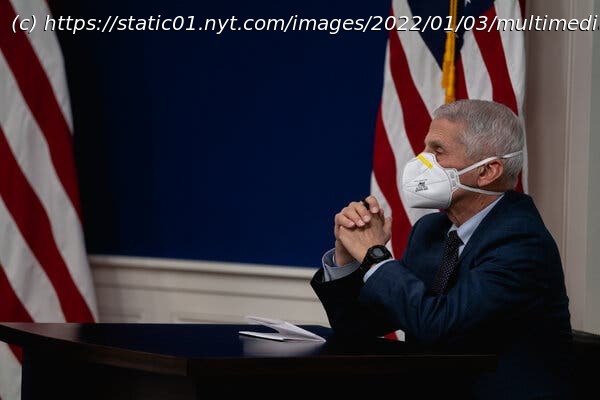The start of 2022 has echoes of the last two years, but the landscape is also changing.
The start of this year may seem uncomfortably similar to the beginning of 2021, with surging coronavirus case counts, event cancellations and companies revising their return-to-office plans. But in 2022, there are important differences in the path of the pandemic — and the policy response to it. “We want to make sure there is a mechanism by which we can safely continue to keep society functioning while following the science,” Rochelle Walensky, the director of the C.D.C., said recently. The Omicron variant, while highly contagious, is seemingly less severe than previous strains of the coronavirus. As the government pushes to keep the U.S. economy open despite record cases — but lower hospitalization and death rates — it raises new questions for businesses preparing for a third year of the pandemic. Government policies are set to change: That leaves companies with a lot to consider. Some, like Goldman Sachs, are changing their vaccination policies: Goldman will require a booster for all employees and visitors entering its offices beginning Feb.1. Employers will also need to rethink their policies if they want to bring infected workers back to the office more quickly. This makes testing the next big issue, with the administration scrambling to increase supply amid shortages. Some big firms have been buying tests in bulk to give to employees, but smaller companies may not have similar capacity. Deciding whom to prioritize for tests, who pays for them, and how to verify the results will bedevil many boardrooms in the coming months. If Broadway shows, sporting events and conferences are anything to go by, keeping things open won’t be easy. More pandemic news: Trading in Evergrande’s stock is halted. The embattled Chinese property developer hasn’t yet revealed why trading of its shares in Hong Kong was paused, though Chinese media reported that the company would be forced to demolish a residential development. Last month, the credit ratings agency Fitch declared Evergrande in default. U.S. telecom giants decline a government request to delay 5G expansion. Verizon and AT&T said yesterday that they would not again postpone plans to widen their next-generation wireless coverage, despite transportation officials’ worries that the new signals would interfere with airport communications. The carriers instead offered to temporarily limit 5G’s use around airports. Twitter permanently suspends Representative Marjorie Taylor Greene’s personal account. The social network’s move came after it had temporarily locked the Georgia Republican four times for spreading misinformation, most recently about Covid vaccines. On the social media platform Telegram, Greene called Twitter an “enemy of America.






